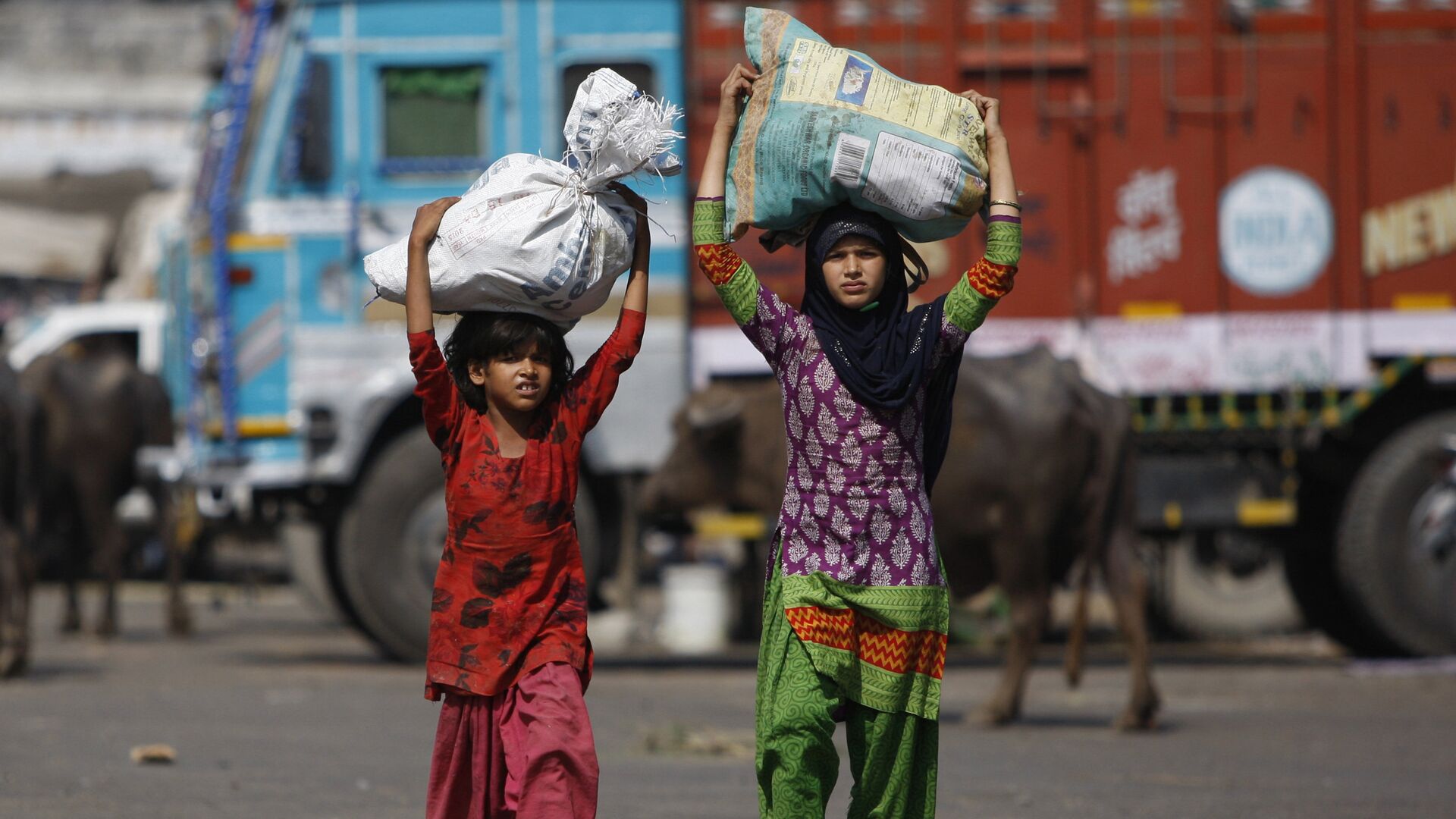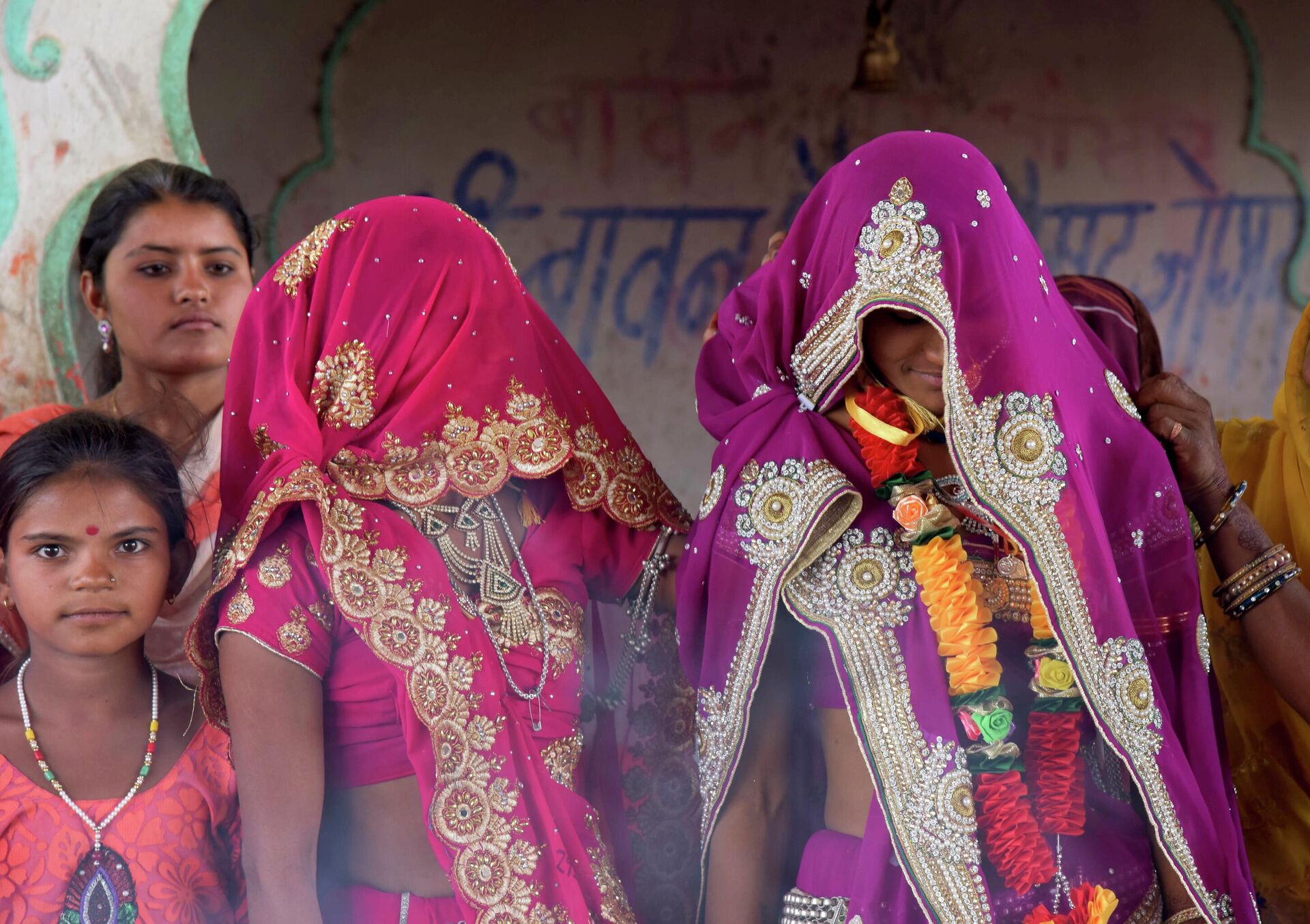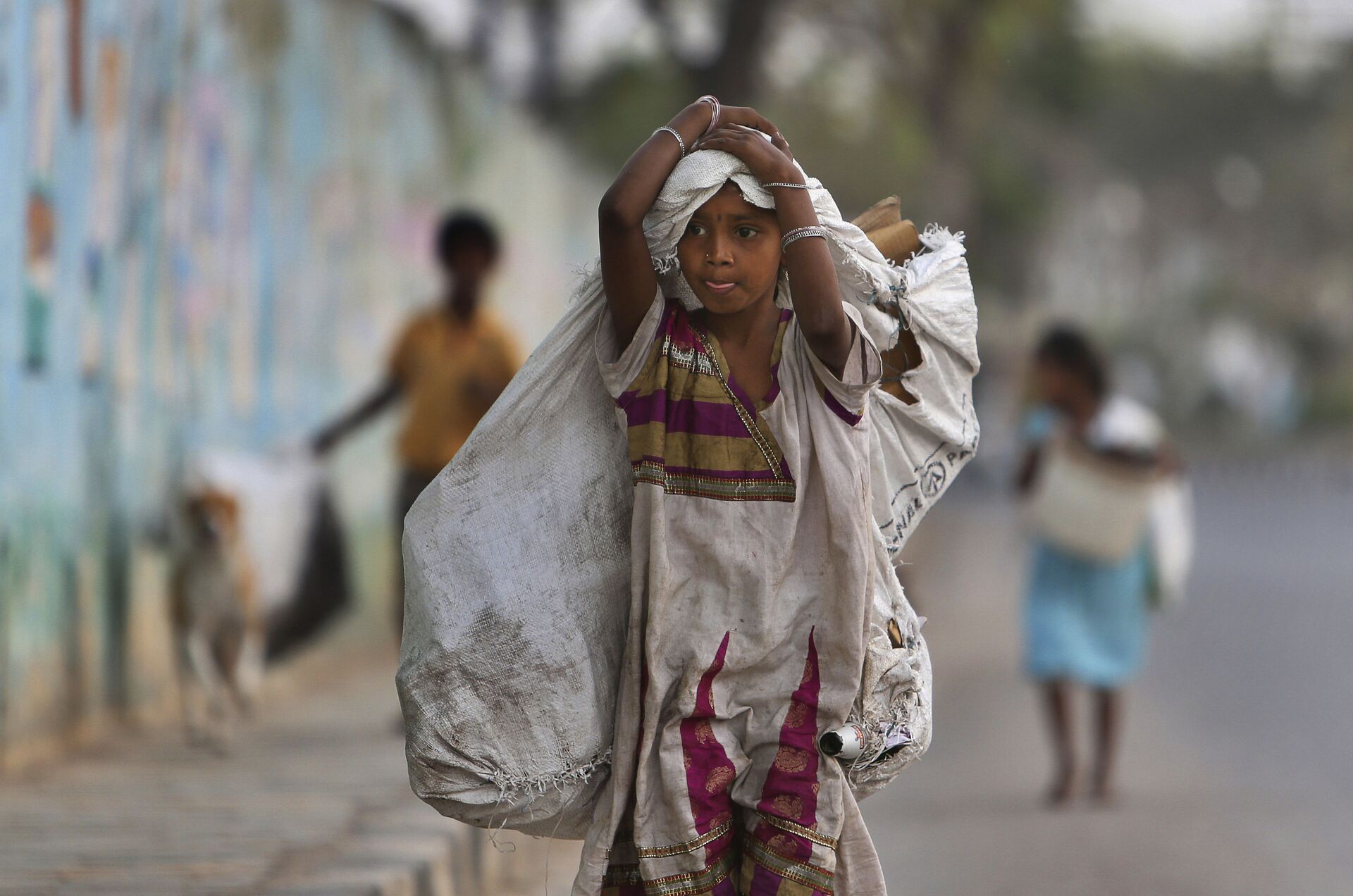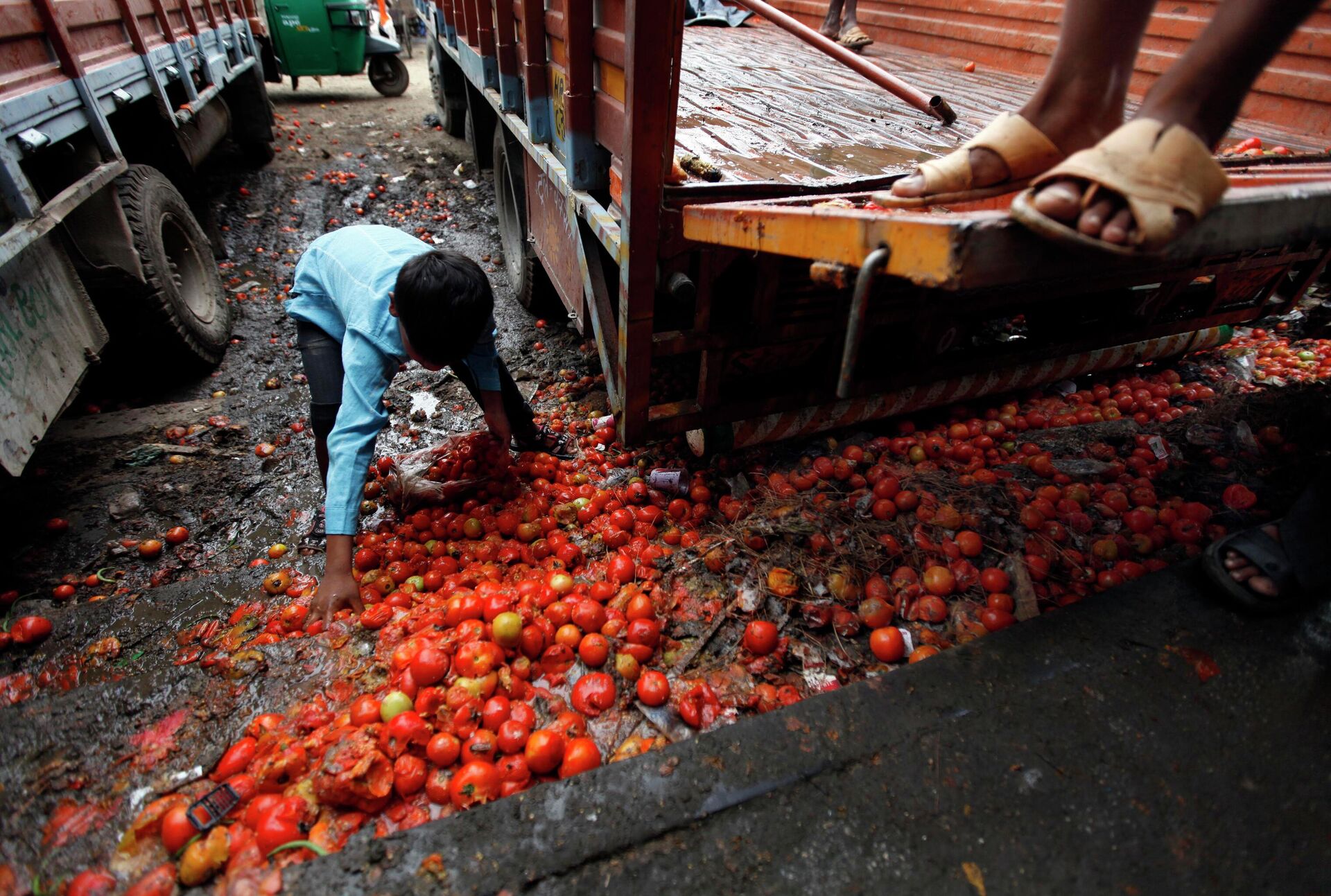https://sputnikglobe.com/20221114/sensitizing-society-can-help-curb-crimes-against-children--protect-rights-expert-1104097796.html
Sensitizing Society Can Help Curb Crimes Against Children & Protect Rights: Expert
Sensitizing Society Can Help Curb Crimes Against Children & Protect Rights: Expert
Sputnik International
Every year, November 14 is celebrated as Children’s Day in India. The day also marks the birth anniversary of the country's first prime minister, Jawaharlal... 14.11.2022, Sputnik International
2022-11-14T13:55+0000
2022-11-14T13:55+0000
2022-12-10T11:40+0000
india
children
social
delhi
new delhi
child labor
society
https://cdn1.img.sputnikglobe.com/img/104366/83/1043668390_0:16:3006:1707_1920x0_80_0_0_9ccb5d5d2d46b3789a264992f0218f78.jpg
India’s first prime minister, Jawaharlal Nehru, once said that “Children are like buds in a garden and should be carefully and lovingly nurtured, as they are the future of the nation and the citizens of tomorrow.”Child welfare is indeed the future welfare of every country. However, while India celebrates Children’s Day on November 14, there are still several children-related issues that continue to haunt the country, such as child labor and trafficking.According to the 2011 census, 10.1 million Indian children out of 259.64 million between 5 and 14 are engaged in some kind of labor. The recent data is not available because no census has been conducted after 2011. However, according to an International Labour Organisation (ILO) report titled “Child Labour in South Asia” cited by several media organizations in June 2022, India is among the countries with the highest levels of child laborers.Another report - from Kailash Satyarthi Children’s Foundation - claimed that the total child labor population in the country will reach 8.12 million by 2021 and then decline to 7.43 million by 2025. Their conclusions came after exploring the rate of child labor population in the last four decades.Apart from this, child trafficking is another major concern as incidents continue to increase in India. As per the data shared by the National Crime Records Bureau in August, cases of human trafficking increased by 27.7 percent, with a total of 2,189 cases registered in 2021 compared to 1,714 in 2020.As India observes Children’s Day, Sputnik reached out to experts to understand the graveness of the situation and what measures may be taken to control it.Case StudyOn a normal day in June, the National Commission for Protection of Child Rights (NCPCR) rescued a 12-year-old boy who hailed from India’s Bihar from a factory in north Delhi.The boy, who remains unnamed for legal reasons and will be called Raj in this article, along with his four friends (all male and aged 12-14) were given INR 1,800 ($22.30) to travel to Delhi and were told by a man that they can earn more by doing four-six hours work. They were also promised food and a place to stay.Raj and all his friends agreed to work in a mattress factory in Delhi, as their family's economic condition was heavily impacted by the COVID pandemic.The employers were arrested under India's anti-trafficking laws. Children aged 9-15 years are preferred for menial jobs as they are seen as cheap labor.In other incidents, Delhi Police rescued at least 73 children in March, all aged below 15, from Narela area of the capital city. Out of these, 38 were girls and 35 were boys and most of them belonged to Uttar Pradesh and Bihar states.Sahyog Care for You, the NGO that informed police about these children's condition, told Sputnik that the kids were working as bonded laborers in polishing, toy and fan manufacturing units in north Delhi's Bawana for 15 hours a day in hazardous conditions.In India, children are allowed to work in non-hazardous occupations and processes from the age of 14, but with restrictions including restricted hours, rest hours and no overtime. Children under 14 can only be involved in certain family-related businesses.But, as the country was severely hit due to COVID and a strict lockdown was introduced in March 2020, millions of children could not attend school and were also deprived of the lunch that the students used to get there. At the same time, many families lost their jobs, forcing parents to allow their children to work for money and food.Government InitiativesNCPCR Chairman Priyank Kanoongo told Sputnik that COVID turned out to be the biggest challenge for the government.Talking about the government’s initiative to curb child labor and trafficking, the child rights body said: “Various initiatives are already going on, like the NCPCR has initiated an action plan and launched a pilot project to map the children and families vulnerable to child trafficking and provide them the benefits under various schemes of the federal government.”Apart from this, he also informed that new guidelines related to child trafficking and labor will be released soon.Kanoongo also pointed out that India's problem regarding child labor is very different, and activists need to stop looking at it from “western glasses or views” and rather find indigenous solutions collectively.Possible Solutions to Control Crime Against ChildrenDespite various initiatives of the government, crimes against children are considerably high. Highlighting the major issues related to crime against children and child rights, the director of organizational effectiveness for Action Aid India, Dipali Sharma, told Sputnik that there are various issues but the major problems are child labor, child trafficking, and child marriages.However, there are laws made by the federal government to control and prevent all these crimes against children but cases continue to be reported every now and then.Civil society members and NGOs have been demanding strict implementation of the law and advocating sensitizing society towards protecting our children and their rights.Talking about how society can be sensitized, Sharma said: “It has to be an all-round approach starting from within the family. It is important to listen to the children within the family. In India, we don’t have a social tradition to listen to the children as we consider them too naïve and most of the time we neglect their problems.”She also suggested forming free, fair and secure child-friendly spaces for adolescents so that they can share their problems as they might not be comfortable discussing them with their parents.Apart from this, Sharma also recommended better collaboration and convergence of various departments involved in protecting child rights. “When it comes to issues related to child labor, various departments are involved like Women and Child Development, Labour Department and then police or law enforcement agencies. There should be better collaboration between all these departments to streamline the efficiency of law implementation,” she stated.
delhi
new delhi
Sputnik International
feedback@sputniknews.com
+74956456601
MIA „Rossiya Segodnya“
2022
Rahul Trivedi
https://cdn1.img.sputnikglobe.com/img/07e5/05/12/1082926121_0:-1:627:627_100x100_80_0_0_d882e1a63f627c25b7a534fb8b8234d7.jpg
Rahul Trivedi
https://cdn1.img.sputnikglobe.com/img/07e5/05/12/1082926121_0:-1:627:627_100x100_80_0_0_d882e1a63f627c25b7a534fb8b8234d7.jpg
News
en_EN
Sputnik International
feedback@sputniknews.com
+74956456601
MIA „Rossiya Segodnya“
Sputnik International
feedback@sputniknews.com
+74956456601
MIA „Rossiya Segodnya“
Rahul Trivedi
https://cdn1.img.sputnikglobe.com/img/07e5/05/12/1082926121_0:-1:627:627_100x100_80_0_0_d882e1a63f627c25b7a534fb8b8234d7.jpg
india, children, social, delhi, new delhi, child labor, society
india, children, social, delhi, new delhi, child labor, society
Sensitizing Society Can Help Curb Crimes Against Children & Protect Rights: Expert
13:55 GMT 14.11.2022 (Updated: 11:40 GMT 10.12.2022) Deexa Khanduri
Sputnik correspondent
Every year, November 14 is celebrated as Children’s Day in India. The day also marks the birth anniversary of the country's first prime minister, Jawaharlal Nehru. Earlier, Children’s Day was observed on November 20, but after the death of Nehru in 1964, a resolution was passed in the parliament to mark his birthday as Children’s Day.
India’s first prime minister, Jawaharlal Nehru, once said that “Children are like buds in a garden and should be carefully and lovingly nurtured, as they are the future of the nation and the citizens of tomorrow.”
Child welfare is indeed the future welfare of every country. However, while India celebrates Children’s Day on November 14, there are still several
children-related issues that continue to haunt the country, such as child labor and trafficking.
According to the 2011 census, 10.1 million Indian children out of 259.64 million between 5 and 14 are engaged in some kind of labor. The recent data is not available because no census has been conducted after 2011. However, according to an International Labour Organisation (ILO) report titled “Child Labour in South Asia” cited by several media organizations in June 2022, India is among the countries with the highest levels of child laborers.
“Substantial variation in child labor estimates exists across the South Asian countries. In absolute terms, child labor in 5-17 age group is highest in India (5.8 million), followed by Bangladesh (5 million), Pakistan (3.4 million) and Nepal (2 million),” the report said.
Another report - from Kailash Satyarthi Children’s Foundation - claimed that the total child labor population in the country will reach 8.12 million by 2021 and then decline to 7.43 million by 2025. Their conclusions came after exploring the rate of child labor population in the last four decades.
Apart from this, child trafficking is another major concern as incidents continue to increase in India. As per the data shared by the National Crime Records Bureau in August, cases of human trafficking increased by 27.7 percent, with a total of 2,189 cases registered in 2021 compared to 1,714 in 2020.
“A total of 6,533 victims have been reported to be trafficked, of which 2,877 are children and 3,656 adults. Apart from this, 6,213 victims have been rescued from the clutches of traffickers," the report said.
As India observes Children’s Day, Sputnik reached out to experts to understand the graveness of the situation and what measures may be taken to control it.
On a normal day in June, the National Commission for Protection of Child Rights (NCPCR) rescued a 12-year-old boy who hailed from India’s Bihar from a factory in north Delhi.
The boy, who remains unnamed for legal reasons and will be called Raj in this article, along with his four friends (all male and aged 12-14) were given INR 1,800 ($22.30) to travel to Delhi and were told by a man that they can earn more by doing four-six hours work. They were also promised food and a place to stay.
Raj and all his friends agreed to work in a mattress factory in Delhi, as their family's economic condition was heavily impacted by the COVID pandemic.
"I have been working here for the past eight months," Raj told the counselor after he was rescued by a team of NCPCR in conjunction with other NGOs.
The employers were arrested under India's anti-trafficking laws. Children aged 9-15 years are preferred for menial jobs as they are seen as cheap labor.
In other incidents, Delhi Police rescued at least 73 children in March, all aged below 15, from Narela area of the capital city. Out of these, 38 were girls and 35 were boys and most of them belonged to Uttar Pradesh and Bihar states.
Sahyog Care for You, the NGO that informed police about these children's condition, told Sputnik that the kids were working as bonded laborers in polishing, toy and fan manufacturing units in north Delhi's Bawana for 15 hours a day in hazardous conditions.
In India, children are allowed to work in non-hazardous occupations and processes from the age of 14, but with restrictions including restricted hours, rest hours and no overtime. Children under 14 can only be involved in certain family-related businesses.
But, as the country was severely hit due to COVID and a strict lockdown was introduced in March 2020, millions of children could not attend school and were also deprived of the lunch that the students used to get there. At the same time, many families lost their jobs, forcing parents to allow their children to work for money and food.
NCPCR Chairman Priyank Kanoongo told Sputnik that COVID turned out to be the biggest challenge for the government.
“In June, we rescued at least 1,000 children in a drive conducted in 75 identified hotspot markets in 18 states across the country and more than 250 criminal cases were registered,” Kanoongo stated.
Talking about the government’s initiative to curb child labor and trafficking, the child rights body said: “Various initiatives are already going on, like the NCPCR has initiated an action plan and launched a pilot project to map the children and families vulnerable to child trafficking and provide them the benefits under various schemes of the federal government.”
"We have also recommended extensive mapping to be initiated in all the districts of all the states which are potential 'source', 'transit', and 'destination' hotspots of child trafficking, as per the information available with Anti Human Trafficking Units (AHTUs) and National Crime Records Bureau," Kannongo said.
Apart from this, he also informed that new guidelines related to child trafficking and labor will be released soon.
Refuting the claims of funds being reduced for child welfare schemes, the NCPCR chief said: “The funds allocated by the Modi government for child welfare, under the Mission Vatsalya scheme, are three times more than what the previous federal government had allocated.”
Kanoongo also pointed out that India's problem regarding child labor is very different, and activists need to stop looking at it from “western glasses or views” and rather find indigenous solutions collectively.
Possible Solutions to Control Crime Against Children
Despite various initiatives of the government, crimes against children are considerably high. Highlighting the major issues related to crime against children and child rights, the director of organizational effectiveness for Action Aid India, Dipali Sharma, told Sputnik that there are various issues but the major problems are child labor, child trafficking, and child marriages.
However, there are laws made by the federal government to control and prevent all these crimes against children but cases continue to be reported every now and then.
Civil society members and NGOs have been demanding strict implementation of the law and advocating sensitizing society towards protecting our children and their rights.
Talking about how society can be sensitized, Sharma said: “It has to be an all-round approach starting from within the family. It is important to listen to the children within the family. In India, we don’t have a social tradition to listen to the children as we consider them too naïve and most of the time we neglect their problems.”
“For example, we had started a campaign where we engaged with the families and encouraged parents to listen and engage with their children, and understand what is discomforting them. This helps in identifying the problems of the children at a very early stage.”
She also suggested forming free, fair and secure child-friendly spaces for adolescents so that they can share their problems as they might not be comfortable discussing them with their parents.
Apart from this, Sharma also recommended better collaboration and convergence of various departments involved in protecting child rights. “When it comes to issues related to child labor, various departments are involved like Women and Child Development, Labour Department and then police or law enforcement agencies. There should be better collaboration between all these departments to streamline the efficiency of law implementation,” she stated.
“Last but not least, the police or other law implementation agencies as well as the families should understand that any issue related to children or their rights has to be dealt with with a lot of sensitivity,” Sharma said.






